Overview: Where Upper Hunter candidates stand
THIS week, candidates were given the chance to convince Upper Hunter voters why they should choose them as their next state representative.
The upcoming by-election has sparked a widespread conversation on the future of the energy industry, coal royalties, road maintenance and rural health care services.
Here’s what eleven of the thirteen candidates have said they will do, should they be elected on May 22.
In order of appearance. Please note: Independent candidates Bruce MacKenzie and Alan De Audney and Sustainable Australia Party candidate Calum Blair were absent from the ‘meet the candidate’ events this week.
Steve Reynolds, Independent:
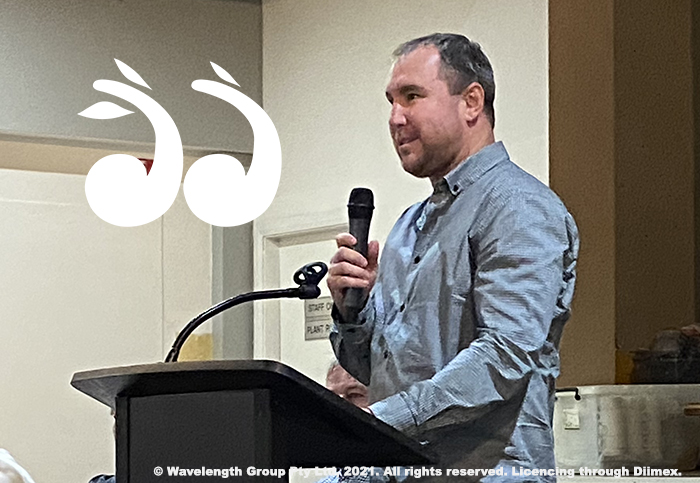
Independent candidate Steve Reynolds.
Mr Reynolds said he is supportive of mining but mindful of impacts on the agriculture industry. He said, “it’s time to have discussion between people of the land and the mining industry.” If elected he would focus on improving mental and physical health services, road maintenance, manufacturing jobs and land and water security, ensuring rural people have sustainable water access. Mr Reynolds also said he will focus on gaining more State Government road funding and followup the document outlining the proposed reallocation of Council roads to State roads. He said his experience as a Muswellbrook Councillor has allowed him to see all sides of politics. He commended other candidates for putting their hands up but emphasised the benefit of having an Independent gain the seat in a minority government. Mr Reynolds said as an Independent, he wants to negotiate policy that is in the best interests of the region, to make the Upper Hunter an attractive and liveable region.
Dale McNamara, One Nation Party:
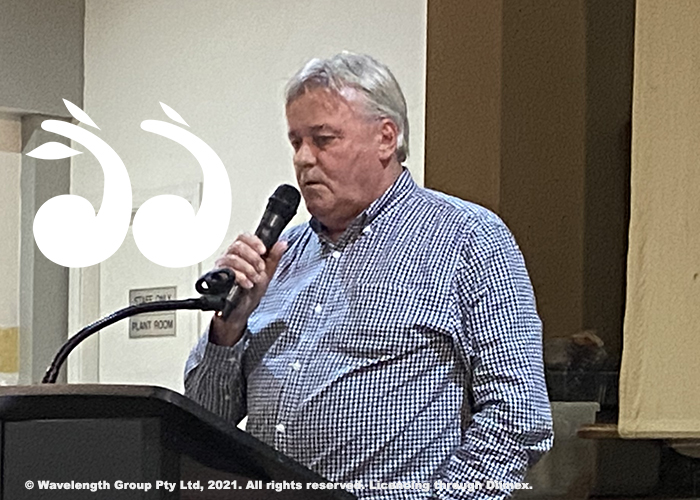
One Nation Party candidate Dale McNamara.
Mr McNamara said coal mining is the highest regulated industry and is here to stay for the foreseeable future as Australia’s economic security. He said if elected, he will push to create a clean coal fired power station next to Bayswater. Mr McNamara emphasised the Upper Hunter has been left behind and residents have not been considered by Sydney decision makers who are working from a “desktop management” perspective. Mr McNamara strongly opposes projects which impact the lane including the proposed Ausgrid power line proposal crossing through Merriwa and “stupid pipelines” which are destroying good soils. He said he’s going to Sydney “for a fight” and will endeavour to bring back the Upper Hunter’s coal royalties entitlements, which date back to an original promise made in 1981.
Sue Abbott, Greens Party:
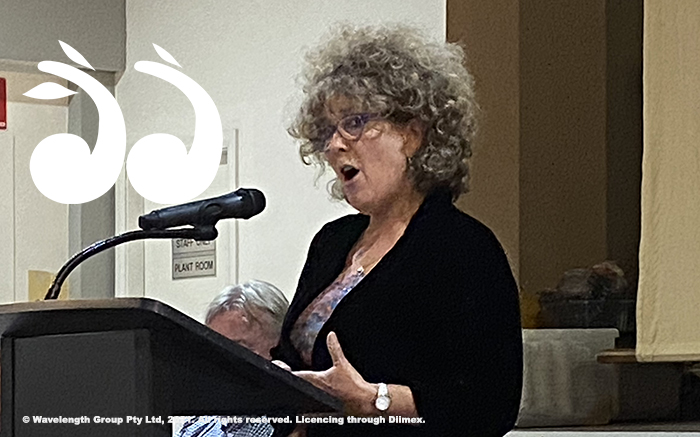
Greens Party candidate Sue Abbott.
Ms Abbott said conservatives can no longer help the Upper Hunter. Her goal is to have an electorate in which climate protections “create prosperity, freedom and security.” Mr Abbott said based on her experience as an Upper Hunter Shire Councillor, she will not be afraid to ask tricky questions, submit freedom of information requests and will hold others to account instead of being bullied into silence. If elected, Ms Abbott’s goal is to speed up the coal-fired power exit and increase spending on renewables. She said the royalty rich Australia has been making below average investments and will soon be left behind as the rest of the world begins to transition away from coal. Ms Abbott is deeply worried about the impeding impacts of climate change and said a vote for the Greens is a vote for the Upper Hunter’s future and future generations.
Kate Fraser, Independent:
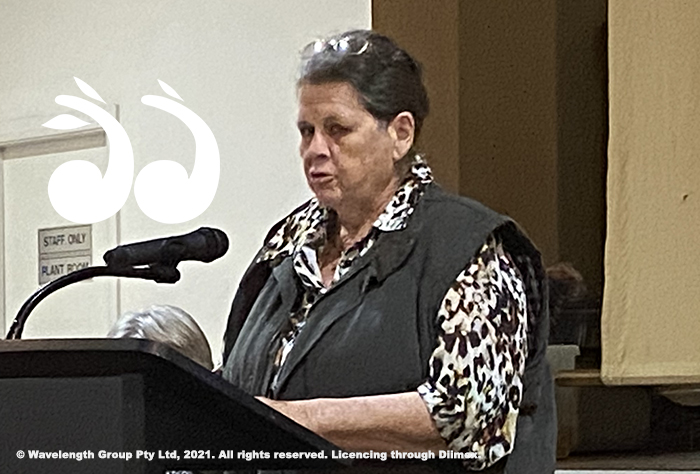
Independent candidate Kate Fraser.
Ms Fraser encouraged the crowd to elect and Independent, emphasising an Independent would have more power within a hung Parliament. Ms Fraser said if elected, she will focus on the appalling Telstra Service and work to improve mobile and internet access, as she can’t be “the only one who’s phone works best at the tank stand.” Ms Fraser also stressed the vitality of additional road funding and the Upper Hunter needing to “catch up.” Her solution is to gain road funding on a per kilometre basis. Ms Fraser stressed the importance of improving health facilities and the need to attract more doctors into towns to provide adequate rural health care access.
Archie Lea, Independent:
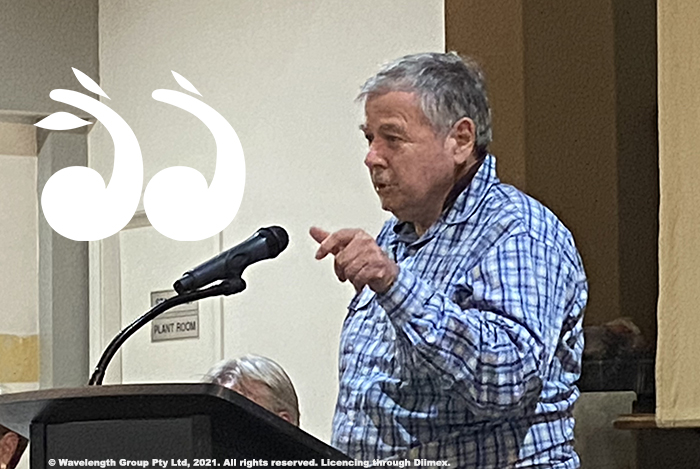
Independent candidate Archie Lea.
Mr Lea said if elected, he will focus on keeping coal mines running because it keeps the lights on and is already there. He asked the crowd to “go home tonight, switch on the light, ask yourself where the power comes from.” Mr Lea said the Upper Hunter has been shortchanged by Sydney bureaucrats and there should be a dollar for dollar basis in the bush. He said clean coal, H20 and gas baseline power is the way forward but he will “not promise anything and is here to serve.” Mr Lea said as an RSL member, reflecting on ANZACS and their fight for freedom makes him quite emotional.
David Layzell, Nationals Party:
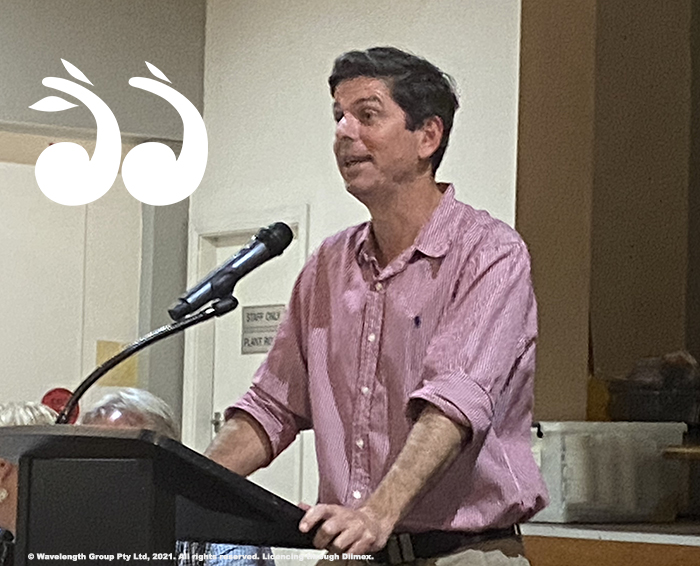
Nationals Party candidate David Layzell.
Mr Layzell said he wants to find good practical solutions to problems. His motivation draws from wanting to create a place where his children can grow up and move back to, to raise their own families. Mr Layzell said if elected, he will focus on creating and maintaining jobs, as they are the social structures that allow family life to survive. He said he wants to go down and join the team of a good stable government, the same government which has kept people safe during Covid-19 and helped during the drought and floods. Mr Layzell said a good government is important for a good economy and managing an economy leads to good jobs and stability. He said “now is not the time to have an unstable minority government and I ask for your support.”
Jeff Drayton, Labor Party:
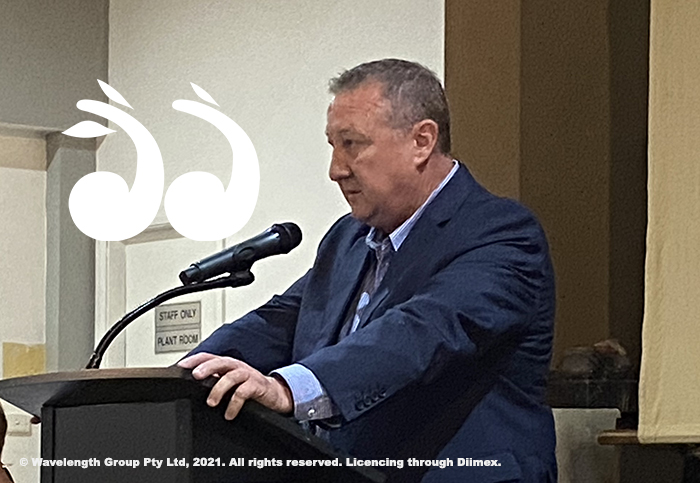
Labor candidate Jeff Drayton.
Mr Drayton said he wants to be an approachable Member of Parliament and get across all areas in the electorate. He said the Upper Hunter is not getting what it deserves and if elected, he will endeavour to bring money back into the electorate, particularly when it comes to funding health care. He said a considerable amount of dollars, time and effort should be spent in aged care, roads and education. Mr Drayton said jobs are also an important focus but the electorate is very diverse when it comes to addressing seperate issues. He said he will try to get across all issues to “genuinely represent the electorate” and will not be promising anything he can’t deliver. Mr Drayton asked voters to consider if they have been heard for the past 90 years whilst the Nationals have held the Upper Hunter seat saying, ” we’ve been lacking for a long long time.”
Tracy Norman, Independent:

Independent candidate Tracy Norman.
Ms Norman said the Upper Hunter needs to turn its attention towards clean manufacturing industries based on the circular economy. She said if elected, she will focus on protecting natural assets, whilst phasing in new low carbon economy and will avoid building unnecessary big things, because “engineers like big things and government like big projects.” Ms Norman said there is room for economic change, with existing renewable technologies available to implement in existing Upper Hunter infrastructure. She said lending institutes are crying out to invest in renewables and the government needs to provide investment certainty in the area before it’s too late. Ms Norman also advocated for better up skilling and education, improved local healthcare access and better public transport. She said an Independent in a minority government would work with visionaries in Parliament and push the Upper Hunter agenda, asking voters to look at her track record as Mayor of Dungog, where she received record government funding.
Kirsty O’Connell, Independent:
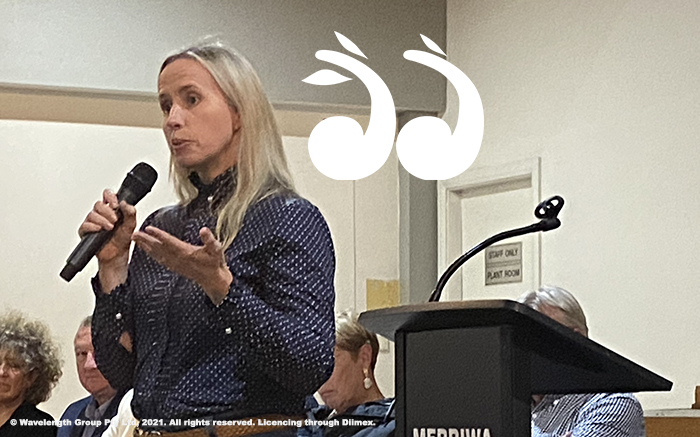
Independent candidate Kirsty O’Connell.
Ms O’Connell took microphone and walked around in front of the podium to address the Merriwa crowd. She said her prior experience as a local journalist and current experience working on major infrastructure delivery will help her tackle the Upper Hunter’s challenges. Ms O’Connell said the by-election is good opportunity to act on the biggest challenge, the inevitable transition away from fossil fuels. She said “we need to be moving on the planning and consultation now” and the get the government interested in economic diversification, which will only work with the assistance of returned coal royalties. Ms O’Connell said Merriwa depends on the coal sector and funding needs to be provided to replace the industry reliance, giving an example of a potential wool processing facility. Ms O’Connell said if elected, she will focus on reinvestment in health care, infrastructure, education, job creation and good telecommunications. Ms O’Connell said Covid-19 proved that country people can make a city wage. She wants to see commitment from the major parties towards building long-standing industries in the Upper Hunter including tourism, agriculture, wine making and equine.
Sue Gilroy, Shooters Fishers and Farmers Party:

Shooters Famers and Fishers Party candidate Sue Gilroy.
Ms Gilroy said “coal puts food on the table” but the Upper Hunter also needs to look at whats next. She said if elected, she will support the mining industry through transition, whilst looking towards other energy forms and developing various Upper Hunter industries. Ms Gilroy emphasised that coal can’t be stopped overnight but there are other industries within electorate that also deserve focus and funding including the equine industry which holds 6,000 jobs. She echoed Kirsty O’Connells comments on how Covid-19 can allow people to earn city wage whilst living a country lifestyle. Ms Gilroy said doctors and nurses are experiencing burnouts and residents are struggling to see a GP, which highlights the need for urgent health care funding. She said Upper Hunter children shouldn’t suffer from a lack of services and people shouldn’t have to rely on having deep pockets to pay for distant health care. Ms Gilroy said she wants to build relationships with locals, who can call in and have cup of tea (or wine) with her.
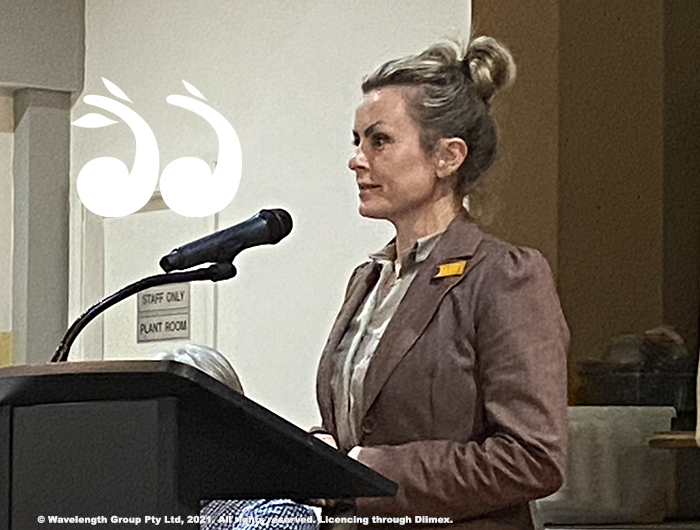
Liberal Democrat Party candidate Eva Pears.
Eva Pears, Liberal Democrat Party:
Ms Pears said she can see a growing authoritarianism in government and the political class on Macquarie Street has “become one authoritarian beast” and is tired of the nepotism in Sydney, whilst Council’s are begging for basic infrastructure funding. Ms Pears said the Liberal Democrat Party stands for private property, free markets and free minds and also informed the crowd it was Karl Marx’s 203rd birthday. Ms Pears said if elected, she would represent a viable third party on the cross bench and make the government fiscally accountable. She will also endeavour to abolish payroll tax and push for an independent into the handling of the Ruby Princess debacle. Ms Pears said “like it or not, coal is the heart of the Upper Hunter” and keeps the lights on. She said the market is driving solutions to the coal problem and is skeptical of the government pushing “greeny deals.” She said she struggles to see the difference between left and right in politics and that voters should start to think in terms of authoritarianism versus libertarianism because she does not trust the Liberal-National Coalition and the Labor-Green alliance.
For more information on where candidates stand: Voting 101: Upper Hunter by-election.
Tags: candidates campaign, meet the candidates, Upper Hunter by-election, Upper Hunter issues
 scone.com.au
scone.com.au